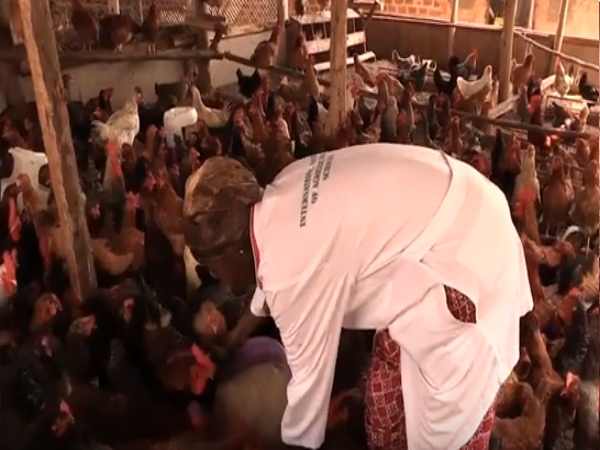Choma Hadija a poultry farmer and a student at International College of Agriculture Sciences pursuing a Diploma in Animal production and management Choma did not pick on the choice because of lack of choices but because it is an area she believed would not send her on the streets looking for a job. She has not yet completed her diploma course but by this time Choma will tell you how a poultry farm can be managed. "If you are looking for more eggs that means you will have to mix the feeds that are highly nutritious. These basics are of course the brand has to be fine."
Simple as poultry farming may sound, Choma explained that it was a delicate venture which equally needed special management skills acquired through training, not just imagination. “The diseases I can talk about here are the likes of Newcastle. Newcastle at this stage is disturbing us so much. And also the infections.” With the example of Choma, stakeholders in Agriculture strongly believe that more funding for practical skills development, especially in agriculture, is needed to solve the increasing number of educated but unemployed youth most of whom are being released onto the market from different higher institutions of learning.
“The rate at which agriculture grows and the investment in agriculture is slow and much less than what ideally should be in this sector because Uganda prides itself in being with cooperatives advantage, with the necessary climate, the necessary soils, the beautiful weather and we should be driving the agenda in the Sub- Saharan Africa by way of being the food basket.” “This is part of the government’s initiative to make sure that Ugandans are skilled. You get students from vocational training institutes that have got a chance of practical and hands-on training, that are able to start their own business ventures or can easily be employable by any of the companies that are into agriculture or people having farms around.” “We opted to come back here when we got the funds to work with them still because they have been giving us the best services for our learners, they have all sections that we are interested in; they have the poultry unit, they have the cattle, piggery, fish farming, horticulture, energy saving sectors; they have bio-gas, manure, everything a student would want to learn about.” “I want to appreciate H.E the President of the Republic of Uganda for this facility through Private Sector Foundation. I have been here and I have seen so many things that farming is the way the President has been talking about farming.” For now, the government’s National Budget allocation for Agriculture is 3% which is far below the expected Maputo Declaration which demands 10% National Budget allocation to the sector. Should this be increased, then the government believes that the youths will be attracted to the sector and as such reduce the unemployment levels.

